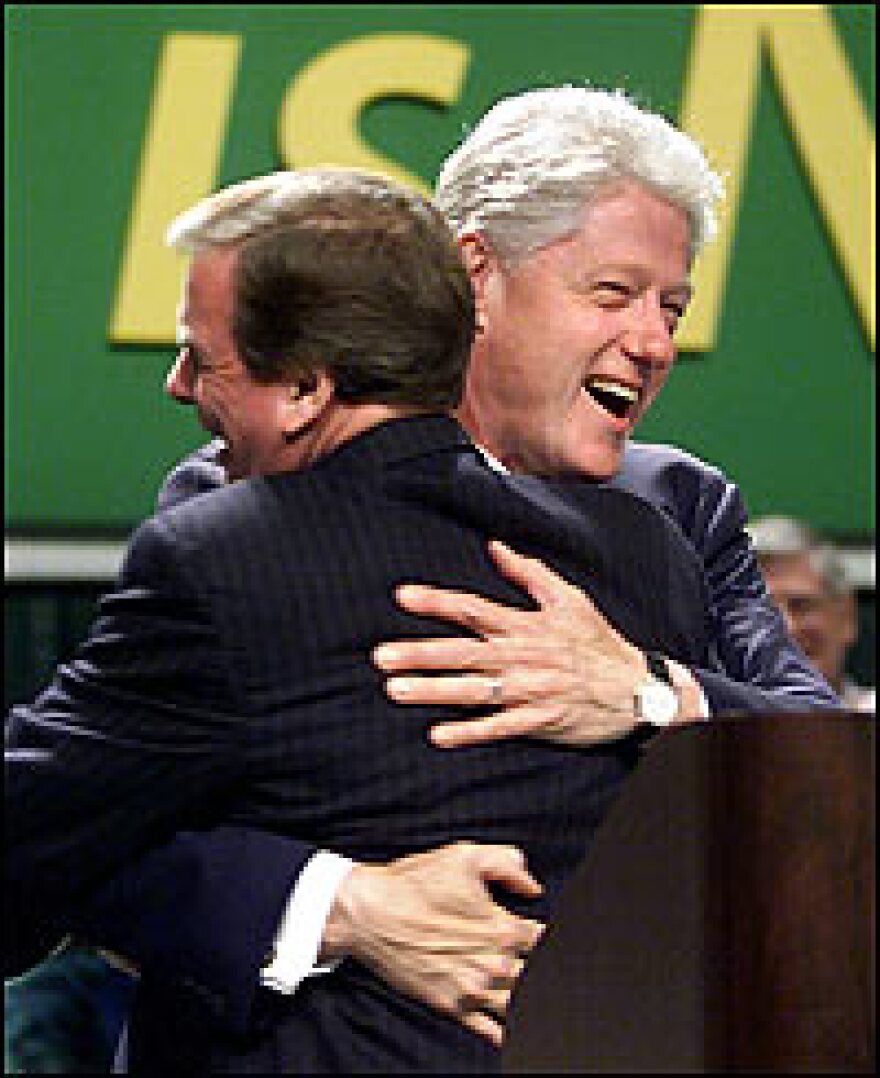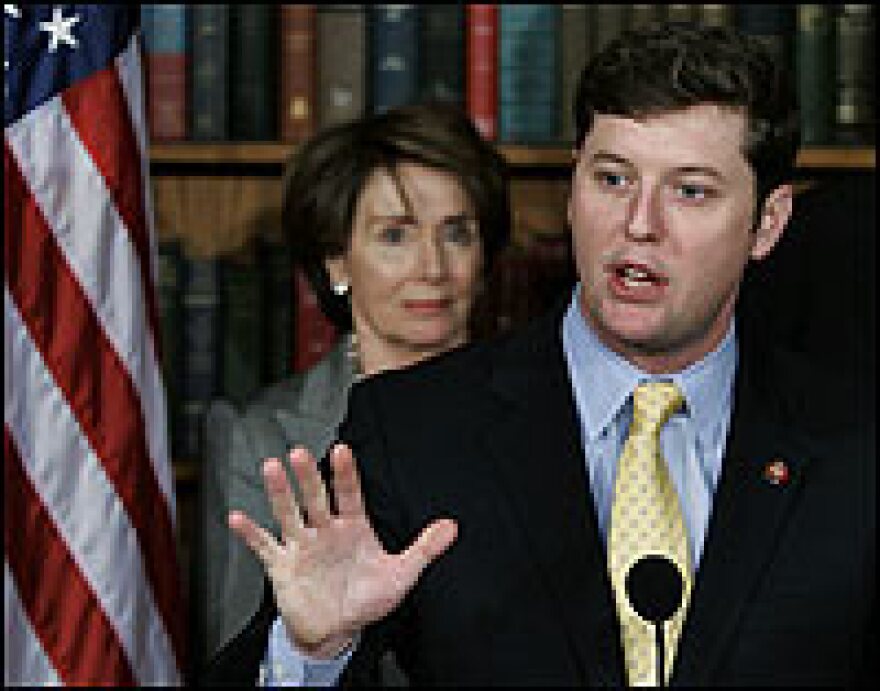

In this protracted presidential race between Illinois Sen. Barack Obama and New York Sen. Hillary Clinton, superdelegates likely will end up deciding the Democratic nominee.
In Pennsylvania, where the next primary happens on April 22, many of the superdelegates have already committed to either candidate and say the Democratic contest has gone on too long.
One of the state's superdelegates is Gerald McEntee, the president of AFSCME, the federal, state and municipal workers union. He says superdelegates have a big job this year in persuading their undecided colleagues to support a candidate. In his case, he likes Clinton's because he says she will appeal to voters in swing states.
"She did extremely well in Ohio — appealed to what is really the base of Ohio. I think she can turn it from red-to-blue and that's absolutely necessary to win the presidency," he says.
Congressman Patrick Murphy, who represents Philadelphia suburbs, supports Obama. As an Iraq veteran, Murphy feels strongly that Obama is right on bringing troops home.
But he also wants to make sure that if Obama wins the popular vote and the greatest number of pledged delegates, he will also win the nomination. "I don't want to see the superdelegates overturn what he earned, and that's the right to be our Democratic nominee," he says.
The chair of the suburban Montgomery County Democratic Party, Marcel Groen, is also a Clinton supporter. What mostly concerns him is a potential fight for the nomination at the Democratic National Convention.
"I think we need to get in a room and think we need understand everybody's taking count right now, and this is what the count will be and let's move forward. If not, the only thing we've accomplished by this historical contest is to elect Sen. McCain and that makes no sense," he says.
Copyright 2023 NPR. To see more, visit https://www.npr.org.





